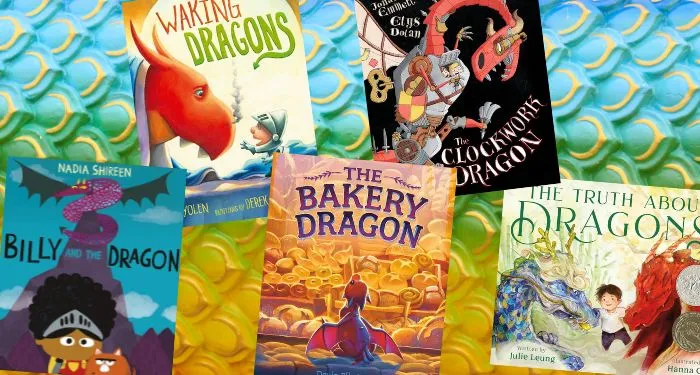Kelly is a former librarian and a long-time blogger at STACKED. She's the editor/author of (DON'T) CALL ME CRAZY: 33 VOICES START THE CONVERSATION ABOUT MENTAL HEALTH and the editor/author of HERE WE ARE: FEMINISM FOR THE REAL WORLD. Her next book, BODY TALK, will publish in Fall 2020. Follow her on Instagram @heykellyjensen.
The board changed how they handled this in March 2023, no longer allowing parental opt-outs. That decision came without notice, but court testimony would show that the board made the decision due to student absenteeism, the disruption in students being pulled from class, the burden on administrators for policing who could and could not be present for lessons, and finally–perhaps most importantly–the ways that students who saw themselves or loved ones represented by the books would feel isolated and stigmatized by their peers’ absence.
Parents from an array of religious backgrounds–Muslim, Ukrainian Orthodox, and Catholic–sued the board over this change. They believed that removing the ability to know ahead of time and opt their students out of the curriculum constituted a violation of their religious freedom and parental rights. The plaintiffs claimed they were not aiming to ban the books. Rather, they wanted to maintain control over what lessons their students were exposed to in the public schools. Mere exposure to books with positive portrayals of LGBTQ+ characters and themes went against their religious beliefs.
When the case went to district court, the court did not find sufficient evidence that the plaintiffs saw their religious freedom hindered. The parents appealed, and the Fourth Circuit Court of Appeals agreed with the previous decision.
Literary Activism
News you can use plus tips and tools for the fight against censorship and other bookish activism!
All of this background is essential for understanding the Supreme Court ruling in Mahmoud v. Taylor. The case specifically asks whether or not Montgomery County Public Schools must allow parental opt-out and notification if the school will provide positively affirming lessons related to gender and sexuality if it might violate religious beliefs.
This is not a case about book banning, nor is it a case about removing books or curriculum related to gender and/or sexuality from the public schools. The books at the center of the case do not need to be removed from Montgomery County Schools nor any other schools or institutions in the country. It is also not a case about all potential lessons that may contradict religious beliefs, including those which may relate to evolution. Those will, of course, become additional areas in which the case ruling will play a role in public school leader decision making, as well as play a role in the pressure put upon those leaders by small groups of parents who do not represent the bulk of public school users–the same kinds of groups we’ve seen pushing their far-right agendas into public schools and public libraries over books since early 2021.
But those are not the core of the case. The core is the responsibility United States public schools must take in parental notification and opt-out options for topics that might be against the religious beliefs of parents when it comes to positively affirming gender and sexuality. This is important because the decision impacts where and how public schools may need to alter policy and decision-making related to LGBTQ+ books, content, lessons, and more.
This is deeply concerning. It sends a grave message to LGBTQ+ students, families, educators, and administrators that they are seen as a burden to the religious beliefs of a small contingent of the population. But–and this is important to emphasize amid the extremist headlines and fear in the ruling of this case–this is not going to change the tenor of bigotry and homophobia already leading the decisions public schools are making when it comes to classroom lessons and materials made available in public school classroom and library collections. Schools that have been eager to abandon queer students and queer reality and history will apply this decision as broadly as possible, citing Mahmoud here as their permission slip. Boards infused with far-right leaders and supported by far-right political action group cash will step further into their discriminatory policies.
Schools where LGBTQ+ lessons and materials have not been subject to criticism or pressure from outside will likely either continue as-is and/or there will be a marked decrease in the use of such materials in the classroom thanks to the chilling effect. It’s easier simply never to have those positively-affirming books available or included in curriculum than to continually have to issue notifications and provide an option to opt-out.
Again: this is deeply concerning, but it is not a ruling that says LGBTQ+ books must be removed or be abandoned all together. Indeed, the ruling doesn’t mean positively affirming LGBTQ+ cannot be made available in classroom libraries or public school libraries. It will be applied as every other damning legislation has been since the rise in censorship and curriculum attacks by the religious right since 2021, of course. But this is why it has been and will continue to be especially crucial that LGBTQ+ advocates, public school advocates, and literary advocates pour time, effort, energy, and money into states where marginalized voices have been most brutalized this decade. It is a privilege to write off so-called “red” or “bad” states, when on-the-ground activism in those states to protect the rights of their most vulnerable has tireless since the start.
Plenty of questions arise with Mahmoud that go unaddressed in the ruling. If parents need to be notified about LGBTQ+ books in a classroom or school library because those might contradict religious beliefs, do parents also need to be notified and allowed to opt their children out of sharing a classroom with LGBTQ+ students? What about students who have LGBTQ+ parents? What about an LGBTQ+ teacher?
It is important to understand that for the religious right, the Establishment Clause is interpreted differently than it is for the general population. Where most read the separation of church and state to mean that religious doctrine cannot be infused in government operations–i.e., public schools cannot require prayer–for the religious right, the Clause is interpreted the opposite. The state cannot impede on where or how their beliefs are applied–i.e., public schools cannot provide positively-affirming lessons on LGBTQ+ people because it counteracts their individual beliefs on the matter. We’ve seen this trickle in at the state level, including in Texas, where the most updated public school curriculums are infused with Bible lessons; for now, the new curriculum is opt-in for schools, but it comes with a financial incentive for those who subscribe. Mahmoud further provides for religion to be the dominant factor in separating church and state.
The dual interpretations of the Establishment Clause and the ways that the religious right have acquired more of their own rights against the good of the whole public shines especially clear in Justice Clarence Thomas’s concurring opinion. Thomas has shown over the last several Supreme Court sessions that he’s on the side of the far right and the religious right (which overlap significantly). Sometimes, Thomas simply reiterates their talking points as if they’re judicial fact and not conspiratorial opinion:
“The curriculum itself also betrays an attempt to impose ideological conformity with specific views on sexuality and gender […] They present views that run contrary to traditional religious teachings as “correct and worthy of acclaim,” asserting, for example, that “sex is irrelevant to whether two people can get married,” that students should question their genders, and that gender transitions are unequivocally positive. See ante, at 22–25. Beyond the materials themselves, the Board instructed teachers to reprimand certain traditional religious views about sex and gender as “‘hurtful,’” and to respond to students’ questions with answers that, among other things, endorse same-sex marriage and transgender ideology. See ante, at 25–26. The Board’s exclusion of traditional religious views, coupled with a curriculum that “pressure[s students] to conform,” Yoder, 406 U. S., at 211, constitute an impermissible attempt to “standardize” the views of students.”
You don’t need to ask whose “traditional religious views” this means.
Further, Thomas writes:
The Board may not insulate itself from First Amendment liability by “weav[ing]” religiously offensive material throughout its curriculum and thereby significantly increase the difficulty and complexity of remedying parents’ constitutional injuries. Id., at 13. Were it otherwise, the State could nullify parents’ First Amendment rights simply by saturating public schools’ core curricula with material that undermines “family decisions in the area of religious training.” Yoder, 406 U. S., at 231. The “Framers intended” for “free exercise of religion to flourish.” Espinoza, 591 U. S., at 497 (THOMAS, J., concurring). Insofar as schools or boards attempt to employ their curricula to interfere with religious exercise, courts should carefully police such “ingenious defiance of the Constitution” no less than they do in other contexts.
Three Supreme Court Justices–Justice Sotomayor, alongside Justices Kagan and Jackson–dissented with the Mahmoud opinion, with Sotomayor issuing the brief. It is worthy of being read in full, and it gets to the heart of what’s really going on here:
Casting aside longstanding precedent, the Court invents a constitutional right to avoid exposure to “subtle” themes “contrary to the religious principles” that parents wish to instill in their children. Ante, at 23. Exposing students to the “message” that LGBTQ people exist, and that their loved ones may celebrate their marriages and life events, the majority says, is enough to trigger the most demanding form of judicial scrutiny. Ibid. That novel rule is squarely foreclosed by our precedent and offers no limiting principle. Given the great diversity of religious beliefs in this country, countless interactions that occur every day in public schools might expose children to messages that conflict with a parent’s religious beliefs. If that is sufficient to trigger strict scrutiny, then little is not.
The result will be chaos for this Nation’s public schools. Requiring schools to provide advance notice and the chance to opt out of every lesson plan or story time that might implicate a parent’s religious beliefs will impose impossible administrative burdens on schools. The harm will not be borne by educators alone: Children will suffer too. Classroom disruptions and absences may well inflict long-lasting harm on students’ learning and development.
Worse yet, the majority closes its eyes to the inevitable chilling effects of its ruling. Many school districts, and particularly the most resource strapped, cannot afford to engage in costly litigation over opt-out rights or to divert resources to tracking and managing student absences. Schools may instead censor their curricula, stripping material that risks generating religious objections. The Court’s ruling, in effect, thus hands a subset of parents the right to veto curricular choices long left to locally elected school boards. Because I cannot countenance the Court’s contortion of our precedent and the untold harms that will follow, I dissent.
In other words, by requiring parental notification and opt-outs as they relate to positively-affirming LGBTQ+ lessons, the public element of “public education” no longer applies. These become institutions where religion is at the forefront of curriculum, even if the curriculum itself is not based on religious texts. The individual religious beliefs some members of the school become the foundation upon which teaching and learning about other people are based.
What public school and inclusive literary advocates should be thinking about with Mahmoud isn’t so much the books. That does and will matter; so, too, will parents demanding more inclusive and positively-affirming LGBTQ+ books be shared and made available in classrooms because it aligns with their religious beliefs. Educators will begin to quietly censor what materials they share, what lessons they give, and what is available for use in their classroom.
But advocates should also be concerned with how this case will be used as leverage in the ongoing attempts to push private school education paid for through voucher schemes. In an era where the Department of Education has been taken over by a political party who believes in privatization–and in an era where voucher schemes that allow public money to be diverted to private, religious schools that can discriminate on admission into their institution and have no requirements to provide accommodations to students have passed in several states to the detriment of public education–Mahmoud is another tool in the dismantling toolkit. Alito references this in the majority opinion, noting that some of the plaintiffs in the case had no choice in sending their children to public schools due to financial constraints. He adds that classroom instruction can be coercive and that, therefore, is dangerous: “Young children, like those of petitioners, are often “impressionable” and “implicitly trus[t]” their teachers.”
Educators will be burdened with paperwork by a small number of people who’ve already been thorns in their sides. This will lead to errors and open up the opportunity for further litigation; the grounds of success for such litigation is an open question, however, given that Mahmoud provides for a specific decision with specific parents of specific religious beliefs in a specific school district. Success doesn’t matter, though, when such litigation would lead to a tremendous financial burden on institutions and individuals already on shaky, limited budgets. In turn, there will be more opportunity to point to the failure of public schools as an institution as proof for the need to allow parental choice in education, including stealing money meant for public education under the guise of such choice.
So what now? Continue to advocate for inclusive classroom lessons and materials. Continue to show up to board meetings and demand your voice be heard. At this point, whatever your religious beliefs may be–or even if you have them at all–really consider the ways in which this becomes an opportunity to advocate for your beliefs on positive representation of inclusivity be heard and met. Again, the burden of this opinion will fall heaviest in those places where such fights have been going on for years.
Continue to be a public education advocate, and continue to be a voice for those to be most hurt by this decision: queer kids and children with queer families who’ve been told that their rights of life, liberty, and the pursuit of happiness are less worthy than their “traditionally religious” peers’. We cannot let what is a narrow ruling, albeit painful and discriminatory, be what turns people off from continuing to fight for the rights of all, including and especially young people.
It is quite likely we will see an actual book censorship case make its way to the Supreme Court. The details and outcome in the Fifth Circuit’s ruling in Little et al. v. Llano County et al. are ripe for debate at the federal level. Even if that case is appealed to the Supreme Court, though, there’s no guarantee the Justices will take it. But it is a very different case than Mahmoud and would present a very different opportunity to continue wading into so-called “culture war” issues that have dominated political discourse since the end of the first Trump administration.
Several groups have responded to the Mahmoud ruling, including Authors Against Book Bans, PEN America, and several authors and illustrators whose books were at the center of the case, including Robin Stevenson and Julie McLaughlin and Charlotte Sullivan Wild. Scholar Richard Price also offers excellent further reading and context for this decision.
*The titles in the curriculum and at the heart of Mahmoud v. Taylor are Born Ready by Jodie Patterson, illustrated by Charnelle Pinkney Barlow; IntersectionAllies by Chelsea Johnson, LaToya Council, Carolyn Chai, illustrated by Ashley Seil Smith; Jacob’s Room to Choose by Ian and Sarah Hoffman, illustrated by Chris Case; Love, Violet by Charlotte Sullivan Wild, illustrated by Charlene Chua; My Rainbow by Trinity and DeShanna Neal, illustrated by Art Twink; Pride Puppy by Robin Stevenson, illustrated by Julie McLaughlin; Prince & Knight by Daniel Haack, author, illustrated by Stevie Lewis; Uncle Bobby’s Wedding by Sarah S. Brannen, illustrated by Lucia Soto; and What Are Your Words? A Book About Pronouns by by Katherine Locke and illustrated by Anne Passchier.



















 English (US) ·
English (US) ·